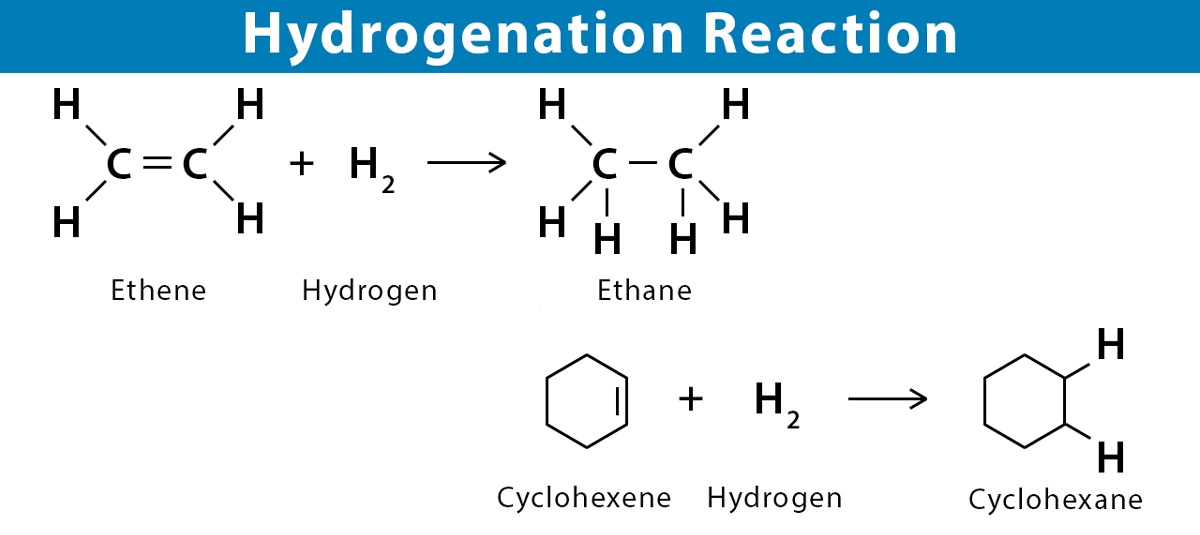
Hydrogenation, a process commonly used in the field of chemistry, is a fascinating and versatile technique that has numerous applications across various industries. This chemical reaction involves the addition of hydrogen to a compound, resulting in the formation of new substances with altered properties. Hydrogenation plays a critical role in many aspects of our daily lives, from the production of edible oils to the creation of synthetic materials.
In this article, we will delve into the world of hydrogenation and explore 14 mind-blowing facts that highlight the significance and wide-ranging impact of this process. Whether you’re a chemistry enthusiast or simply curious about how hydrogenation shapes the materials we use every day, prepare to be amazed by the power and versatility of this remarkable chemical reaction.
Key Takeaways:
- Hydrogenation, discovered in the 19th century, is used in food, fuel, cosmetics, and more, impacting our daily lives in surprising ways.
- The process of hydrogenation can create trans fats, improve fragrance stability, and even reduce environmental pollution, showcasing its versatility and impact on various industries.
The process of hydrogenation was discovered in the 19th century.
Hydrogenation, which involves the addition of hydrogen to a compound, was first discovered by French chemist Paul Sabatier and American chemist Morris W. Travers in the late 1800s.
Hydrogenation is commonly used in the food industry.
It is a popular technique used to convert liquid vegetable oils into solid or semi-solid fats, such as margarine or shortening. This process helps improve the texture, shelf life, and flavor stability of food products.
Hydrogenation can turn unsaturated fats into trans fats.
Trans fats are formed when unsaturated fats undergo a partial hydrogenation process. These fats have been linked to an increased risk of heart disease and other health issues.
Hydrogenation is also used in the production of biodiesel.
This process helps to convert vegetable oils or animal fats into a form of diesel fuel that can be used in diesel engines, reducing dependence on fossil fuels.
Hydrogenation plays a crucial role in the synthesis of many industrial chemicals.
It is widely used in the production of chemicals such as ammonia, methanol, and ethanol, which are essential for various industries including agriculture and manufacturing.
Hydrogenation can enhance the stability and shelf life of cosmetics.
By hydrogenating certain ingredients, cosmetics can resist oxidation and maintain their quality for a longer period of time, reducing the risk of spoilage.
The hydrogenation process can alter the physical properties of substances.
Through hydrogenation, substances can change from being liquid to solid, or from one form to another. This can be utilized in various industries, such as in the production of plastics and rubber.
Hydrogenation can improve the fragrance stability of perfumes and fragrances.
By hydrogenating certain aromatic compounds, the aroma of perfumes and fragrances can last longer, providing a more pleasant and long-lasting scent.
Hydrogenation plays a vital role in the manufacturing of pharmaceuticals.
It is used to modify and stabilize certain drug compounds, enhancing their effectiveness and improving their shelf life.
Hydrogenation can help reduce environmental pollution.
By converting harmful pollutants into less harmful substances, hydrogenation processes play a crucial role in mitigating the impact of pollution on the environment.
The hydrogenation of vegetable oils can lead to the formation of trans fatty acids.
Trans fatty acids, which are formed during partial hydrogenation, have been strongly associated with an increased risk of heart disease.
Hydrogenation can improve the texture of certain food products.
By solidifying fats, hydrogenation can give food products a smoother and more desirable texture, enhancing consumer satisfaction.
Hydrogenation is an important process in the production of soap and detergents.
It helps to modify the properties of certain fatty acids, allowing for the creation of effective cleansing agents.
The hydrogenation of unsaturated hydrocarbons is an exothermic reaction.
During the hydrogenation process, a significant amount of heat is released, making it important to control temperature to ensure safety in industrial settings.
These 14 mind-blowing facts about hydrogenation highlight the diverse applications and significance of this chemical process. From food production to environmental protection, hydrogenation plays a vital role in various industries. By harnessing the power of hydrogen, scientists and chemists have been able to transform substances, enhance the quality of products, and develop innovative solutions. As we continue to explore the world of chemistry, hydrogenation remains a fascinating area of study and innovation.
Conclusion
In conclusion, hydrogenation is a fascinating chemical process that has numerous applications and impacts our daily lives more than we may realize. From turning liquid oils into solid fats to creating fuel for rockets, hydrogenation plays a crucial role in various industries.We have explored some mind-blowing facts about hydrogenation, including its role in enhancing the shelf life of food products, its contribution to the production of margarine and shortening, and its significance in pharmaceutical and cosmetic industries. We also learned about the potential health risks associated with hydrogenated fats and how the process of hydrogenation can affect the nutritional value of foods.Furthermore, we delved into the environmental implications of hydrogenation, particularly its role in the production of hydrogen fuel and its potential as a sustainable energy source. The advancements in hydrogenation technology are continually expanding its applications and paving the way for a greener future.Hydrogenation is a powerful tool in the hands of chemists and engineers, and its potentialities are only beginning to be fully explored. As our understanding of this process deepens, we can anticipate even more groundbreaking discoveries and innovations in the field of hydrogenation.
FAQs
Q: What is hydrogenation?
A: Hydrogenation is a chemical process that involves the addition of hydrogen atoms to unsaturated compounds, typically carbon-carbon double or triple bonds. This process converts liquid fats into solid fats and oils into semi-solid or solid forms.
Q: Why is hydrogenation used in the food industry?
A: Hydrogenation is used in the food industry to improve the texture, stability, and shelf life of food products. It helps to create solid fats, such as margarine and shortening, which have desirable functional properties for baking and cooking.
Q: Are there any health risks associated with hydrogenation?
A: Yes, hydrogenation can result in the formation of trans fats, which have been linked to various health issues, including an increased risk of heart disease. Consuming foods high in trans fats should be limited for better health outcomes.
Q: What are the environmental implications of hydrogenation?
A: Hydrogenation can be both beneficial and detrimental to the environment. On one hand, it is used in the production of hydrogen fuel, which is a cleaner and more sustainable alternative to fossil fuels. On the other hand, the process of hydrogenation itself consumes energy and can contribute to carbon emissions if not properly managed.
Q: How is hydrogenation being used in other industries apart from food?
A: Hydrogenation has applications in industries such as pharmaceuticals and cosmetics. It is used to produce medications, vitamins, and various cosmetic products like lotions, creams, and lip balms.
Q: Can hydrogenation be used as a renewable energy source?
A: Yes, hydrogenation has the potential to be a renewable energy source. By using renewable energy to power the hydrogenation process, hydrogen fuel can be produced, providing a clean and sustainable alternative to traditional fossil fuels.
Hydrogenation may seem like a simple process, but its impact spans across various industries. From altering the properties of substances to improving the stability of cosmetics and pharmaceuticals, hydrogenation plays a crucial role in our daily lives. Want to learn more about this fascinating element? Explore mind-boggling facts about hydrogen clouds, discover why hydrogen is the most abundant element in the universe, and unravel the secrets of hydrogen bonding. Each topic offers a unique perspective on this essential element, guaranteed to satisfy your curiosity and leave you craving more knowledge.
Was this page helpful?
Our commitment to delivering trustworthy and engaging content is at the heart of what we do. Each fact on our site is contributed by real users like you, bringing a wealth of diverse insights and information. To ensure the highest standards of accuracy and reliability, our dedicated editors meticulously review each submission. This process guarantees that the facts we share are not only fascinating but also credible. Trust in our commitment to quality and authenticity as you explore and learn with us.


